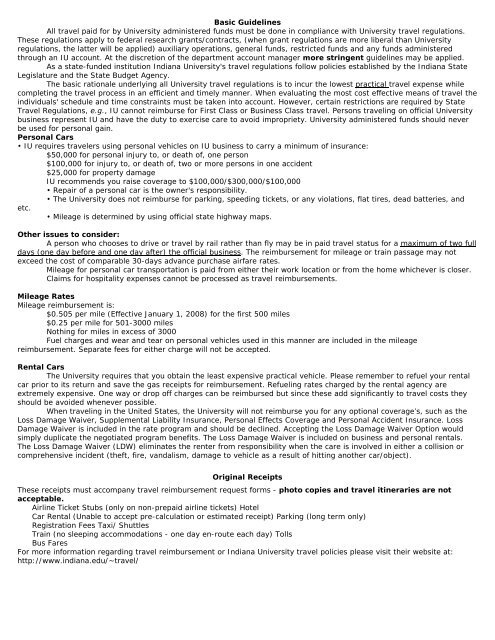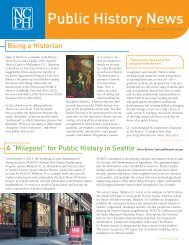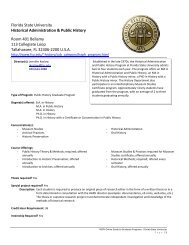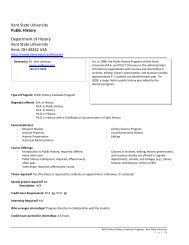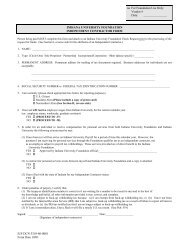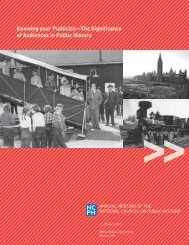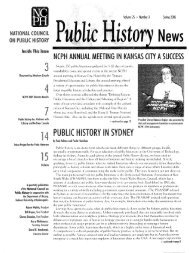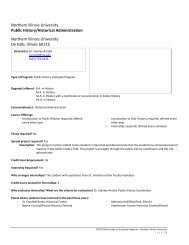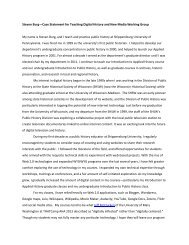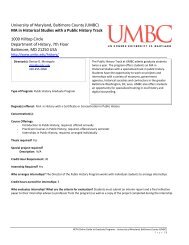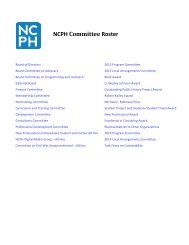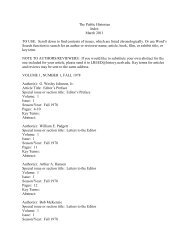Travel Reimbursement Form
Travel Reimbursement Form
Travel Reimbursement Form
You also want an ePaper? Increase the reach of your titles
YUMPU automatically turns print PDFs into web optimized ePapers that Google loves.
Basic Guidelines<br />
All travel paid for by University administered funds must be done in compliance with University travel regulations.<br />
These regulations apply to federal research grants/contracts, (when grant regulations are more liberal than University<br />
regulations, the latter will be applied) auxiliary operations, general funds, restricted funds and any funds administered<br />
through an IU account. At the discretion of the department account manager more stringent guidelines may be applied.<br />
As a state-funded institution Indiana University's travel regulations follow policies established by the Indiana State<br />
Legislature and the State Budget Agency.<br />
The basic rationale underlying all University travel regulations is to incur the lowest practical travel expense while<br />
completing the travel process in an efficient and timely manner. When evaluating the most cost effective means of travel the<br />
individuals' schedule and time constraints must be taken into account. However, certain restrictions are required by State<br />
<strong>Travel</strong> Regulations, e.g., IU cannot reimburse for First Class or Business Class travel. Persons traveling on official University<br />
business represent IU and have the duty to exercise care to avoid impropriety. University administered funds should never<br />
be used for personal gain.<br />
Personal Cars<br />
• IU requires travelers using personal vehicles on IU business to carry a minimum of insurance:<br />
$50,000 for personal injury to, or death of, one person<br />
$100,000 for injury to, or death of, two or more persons in one accident<br />
$25,000 for property damage<br />
IU recommends you raise coverage to $100,000/$300,000/$100,000<br />
• Repair of a personal car is the owner's responsibility.<br />
• The University does not reimburse for parking, speeding tickets, or any violations, flat tires, dead batteries, and<br />
etc.<br />
• Mileage is determined by using official state highway maps.<br />
Other issues to consider:<br />
A person who chooses to drive or travel by rail rather than fly may be in paid travel status for a maximum of two full<br />
days (one day before and one day after) the official business. The reimbursement for mileage or train passage may not<br />
exceed the cost of comparable 30-days advance purchase airfare rates.<br />
Mileage for personal car transportation is paid from either their work location or from the home whichever is closer.<br />
Claims for hospitality expenses cannot be processed as travel reimbursements.<br />
Mileage Rates<br />
Mileage reimbursement is:<br />
$0.505 per mile (Effective January 1, 2008) for the first 500 miles<br />
$0.25 per mile for 501-3000 miles<br />
Nothing for miles in excess of 3000<br />
Fuel charges and wear and tear on personal vehicles used in this manner are included in the mileage<br />
reimbursement. Separate fees for either charge will not be accepted.<br />
Rental Cars<br />
The University requires that you obtain the least expensive practical vehicle. Please remember to refuel your rental<br />
car prior to its return and save the gas receipts for reimbursement. Refueling rates charged by the rental agency are<br />
extremely expensive. One way or drop off charges can be reimbursed but since these add significantly to travel costs they<br />
should be avoided whenever possible.<br />
When traveling in the United States, the University will not reimburse you for any optional coverage’s, such as the<br />
Loss Damage Waiver, Supplemental Liability Insurance, Personal Effects Coverage and Personal Accident Insurance. Loss<br />
Damage Waiver is included in the rate program and should be declined. Accepting the Loss Damage Waiver Option would<br />
simply duplicate the negotiated program benefits. The Loss Damage Waiver is included on business and personal rentals.<br />
The Loss Damage Waiver (LDW) eliminates the renter from responsibility when the care is involved in either a collision or<br />
comprehensive incident (theft, fire, vandalism, damage to vehicle as a result of hitting another car/object).<br />
Original Receipts<br />
These receipts must accompany travel reimbursement request forms - photo copies and travel itineraries are not<br />
acceptable.<br />
Airline Ticket Stubs (only on non-prepaid airline tickets) Hotel<br />
Car Rental (Unable to accept pre-calculation or estimated receipt) Parking (long term only)<br />
Registration Fees Taxi/ Shuttles<br />
Train (no sleeping accommodations - one day en-route each day) Tolls<br />
Bus Fares<br />
For more information regarding travel reimbursement or Indiana University travel policies please visit their website at:<br />
http://www.indiana.edu/~travel/


